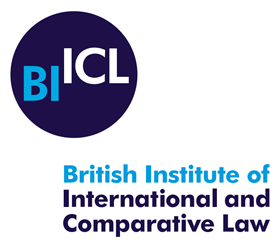It is increasingly expected that human rights due diligence (HRDD) is undertaken by businesses, as per the UN Guiding Principles on Business and Human Rights (UNGPs), OECD Guidelines for multinational enterprises, emerging laws such as the UK Modern Slavery Act and the French duty of vigilance law, and other proposed legislative reforms. Failure to identify, prevent and address adverse human rights impacts may lead to reputational, operational, financial and legal risk.
This paper summarises discussions from a workshop convened by the British Institute of International and Comparative Law (BIICL) and the Principles for Responsible Investment (PRI) on 14 June 2017, and attended by representatives from Actis, AP2, Coller Capital, Development Partners International, ERM, Hg Capital, as well as the OECD, the Institute for Human Rights and Business and Shift. The aim of the workshop was to explore implications of expectations (if any) for HRDD by investors, private equity firms and/or their portfolio companies, and to discuss what guidance and direction is needed.
What is the value of human rights due diligence for private equity?
HRDD is identified by the UNGPs as an ongoing process that should be embedded into a business enterprise’s practices. A robust approach to HRDD by a PE firm would go from pre-acquisition due diligence to ensuring that the portfolio companies themselves embed HRDD into their own operating systems. A portfolio company with an effective HRDD process in place protects itself, investors and the relevant rights-holders, by being able to identify, prevent and address human rights impacts even before they arise.
PE is uniquely positioned to deal with human rights issues, as PE firms can “price in risk”, influence improvements and share HRDD best practice approaches across fund portfolios. A PE firm capable of, and with a reputation for, embedding strong HRDD processes into formerly high-risk portfolio companies should benefit financially by protecting value through risk reduction, cost reduction (such as reducing workforce turnover), or creating value by enhancing the company brand.
Exit considerations are another driver for PE firms to adopt responsible investment programmes. One example of this highlighted at the workshop was of a portfolio company sold to a buyer with a reputation for high human rights and ESG standards. The buyer placed significant weight on its reputation and its own ESG rankings. Since the target already complied with all the buyer’s ESG standards, the buyer would not need to incur costs to bring it up to its expected level. As a result, the buyer was happy to pay a premium and expressly indicated that this was due to the embedded ESG standards.
Key takeaways
- HRDD entails having a comprehensive process in place to identify and prevent any potential adverse human rights impacts (risks) before they occur, as well as addressing and mitigating those impacts which have already occurred.
- Certain features of PE investment may necessitate a higher level of HRDD than other types of investment or financial activity. For example, holding periods, the size of the investment stake, the nature of the markets in which they invest, and the limited options for termination all contribute to the level of HRDD which may be expected. With that said, the leverage of PE firms puts them in an excellent place to influence faster action by portfolio companies on HRDD and to track results and effective practices.
- Even robust ESG due diligence processes may not capture all human rights risks. Questions arise as to how UNGP-compliant HRDD could enhance existing ESG processes.
- Several practical questions arise around implementation. For example, how can a GP or LP respectively exercise leverage? How can contracts, side letters and codes of conduct be improved to facilitate HRDD? How can human rights impact assessments (HRIAs) and prioritisation of severe impacts be incorporated into current processes?
- It is acknowledged that internal communication could be improved. Human rights language should be used and operationalised to ensure that all team members understand potential human rights impacts and risks.
- Human rights considerations may be of utmost importance at the exit stage. Further research on the role of HRDD in the exit process would be welcomed.
Produced in collaboration with British Institute of International and Comparative Law (BIICL)
Downloads
Human rights in private equity: Discussion paper
PDF, Size 0.51 mb












